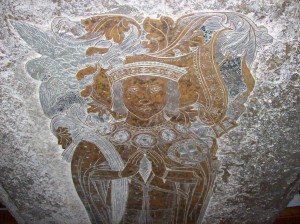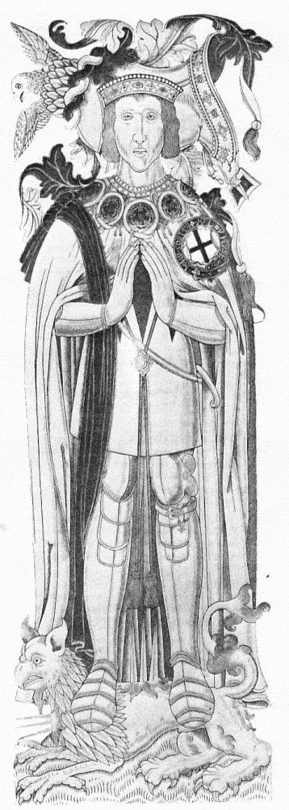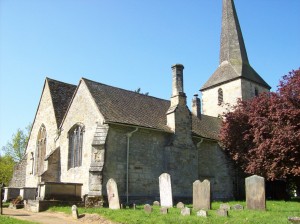 On 12th March 1539, just under three years after the executions of two of his children, Thomas Boleyn, Earl of Wiltshire died at Hever Castle, the Boleyn family home, he was in his sixties.
On 12th March 1539, just under three years after the executions of two of his children, Thomas Boleyn, Earl of Wiltshire died at Hever Castle, the Boleyn family home, he was in his sixties.
Thomas’s servant, Robert Cranwell, wrote to Thomas Cromwell on 13th March to give him the news:
“My good lord and master is dead. He made the end of a good Christian man.”1
Thomas was laid to rest in a tomb in the local church, St Peter’s Church, Hever. His tomb still survives today and is topped with a beautiful memorial brass showing Thomas dressed in the full robes and insignia of a Knight of the Garter, including the badge on his left breast and garter around his left knee. His head is depicted resting on a helmet surmounted by his daughter’s falcon badge and his feet rest on a griffin. The inscription on his tomb reads:
“Here lieth Sir Thomas Bullen, Knight of the Order of the Garter, Erle of Wilscher and Erle or Ormunde, which decessed the 12th dai of Marche in the iere of our Lorde 1538.”
Notice that his date of death is given as 1538 because the Tudor new year started on 25th March, Lady Day, and not 1st January.

In April 1539, Henry VIII paid 16l. 13s. 4d. to his chaplain, William Franklyn, Dean of Windsor, “for certain oraisons, suffrages and masses to be said for the soul’s health of th’erle of Wilts, late deceased”, which is evidence that Thomas was back in favour at his death.2
If you visit Hever Castle then do make sure that you also visit St Peter’s Church, which is situated on the green just outside the main castle entrance. It is a lovely church and is usually open. There, you can see Thomas’s beautiful brass memorial, a 15th century brass for Margaret Cheyne, a simple brass cross memorial to Henry Boleyn, infant brother of Anne Boleyn, a painting by Tintoretto, a Tudor fireplace, and a stained glass window depicting the arms of the Boleyns (the three bulls).
You can read more about Thomas Boleyn in my article In Defence of Thomas Boleyn, father of Anne Boleyn.

Notes and Sources
- LP xiv. Part 1, 511
- LP xiv. Part 2, p309